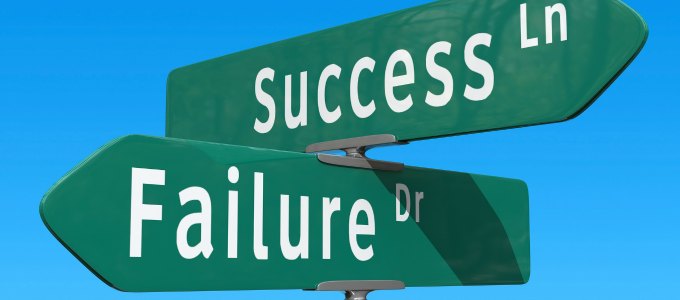I recently wrote this for a class at Duke Law School. It was favorably received, so I decided to share it here. Although addressed to law students, its message is applicable to anyone in the working world. Sometimes failing at what we think is our “dream job” opens us to new opportunities, ones that may just be a better match for our talents and interests.
Law students at top schools tend to be a stressed-out group in general, but during this is the time of year, anxiety levels go to a new level. 1L grades are released in January at most top schools, and the class is instantly sorted into perceived winners, losers and in-betweens. Career and life dreams are made or shattered in moments. Or at least students think so.
All things considered, it is NOT better to make mediocre grades than great ones, of course. Interviews will be tougher to land, friends and family won’t understand why you aren’t at the top of the class as usual, and your job prospects look more uncertain. But it’s not the end of the world.
Research shows little correlation between long-term success and life satisfaction and success in law school. In one recent study, professors Larry Krieger and Ken Sheldon found zerocorrelation between making law review and career satisfaction after 15 years of practice. They also found little correlation with debt load, surprisingly. In law school, there is a “universal fallacy that the road to happiness leads through the top of the class,” Krieger said. It doesn’t.
Believe it or not, there is actually a chance you will be happierin the years to come if your 1L grades disappoint. Some reasons why — ones you won’t hear from your school:
- The pressure is off. At least you know where you stand. Although feedback, hard work and some luck can improve your overall class rank, jumps from the bottom of the class into the top are extremely rare. So, keep working hard but enjoy yourself more. Get out of the library at night; go to basketball games; exercise. Travel on the weekends. Go to concerts. Meet some people in other parts of the college. Network. Keep working hard, but find time to play hard too. You are young with no job responsibilities. Enjoy these years.
- A wider range of opportunities is available. What, you thought bad grades closed doors in the legal world? OK, you won’t be clerking on the Supreme Court or summering at Cravath. Maybe you won’t be a law professor. That’s OK. Everything else is now acceptable in the eyes of your peers and career counselors — public interest law, entrepreneurship, government agency jobs, state court clerkships, small firm practice, etc. Maybe law school was never the place for you, and now is the time to cut your losses (without your parents freaking out). But stick around to graduate, and you’ll still have a highly versatile degree.
- Discover who you really are.Few undergrads are drawn to law school dreaming of someday working 12 hours a day in a windowless office doing the bidding of others. But once in law school, big law jobs like these as well as judicial clerkships have a normative (and financial) pull that is irresistible to those in the top of the class. Lower grades allow you to set goals based upon your values and interests and ignore the gravitational force of other people’s goals. Falling out of the rat race gives you the chance to do so.
This blog is not meant to be glib. If you are a 1L, particularly at a lesser-ranked school, you are probably hurting right now. Things will be tougher in the job market and debts need repaying. But there is no reason to assume your life going forward will be as miserable as it looks to you now. Life has countless twists and turns, many wholly unforeseeable. Approach your life with realistic optimism, keep your options open, and make the most of the next two years. You’ll be surprised how well things might work out.















